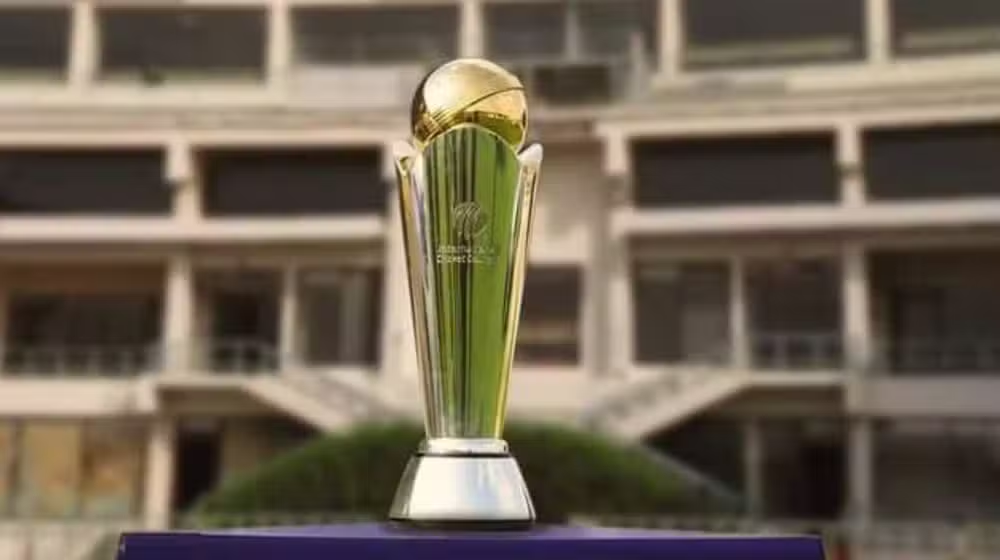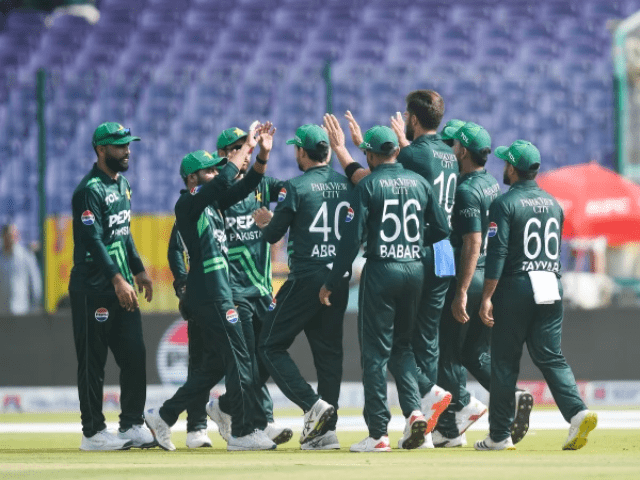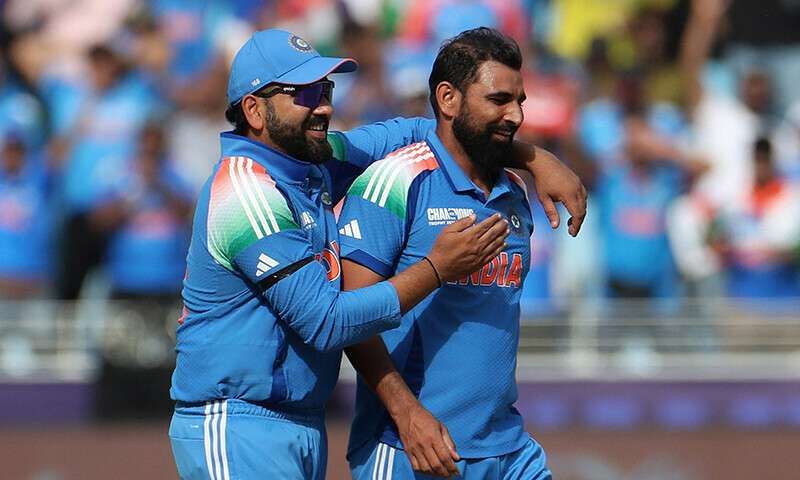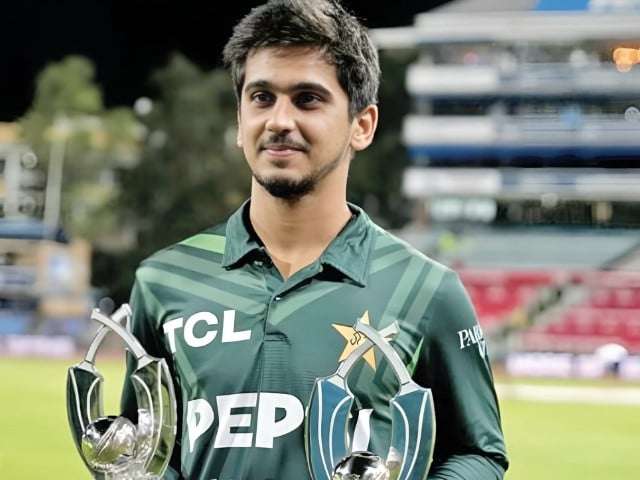BCCI’s Objection Throws ICC Champions Trophy Tour Into Disarray
In a dramatic twist leading up to the 2025 ICC Champions Trophy, the Board of Control for Cricket in India (BCCI) has thrown the tournament’s trophy tour into uncertainty. Just a day before it was set to begin in Pakistan, the BCCI raised objections to the Pakistan Cricket Board’s (PCB) plan to include Muzaffarabad, the capital of Pakistan-administered Kashmir, as one of the tour’s stops. This region remains a longstanding point of contention between India and Pakistan.
Controversy Erupts Over Trophy Tour Schedule
The controversy erupted after the PCB announced its trophy tour schedule on social media platform X (formerly Twitter), earlier this week. The schedule listed Muzaffarabad among other destinations such as Skardu, Murree, and Hunza. While the PCB touted these locations as symbols of Pakistan’s rich heritage and scenic beauty, the BCCI lodged its objection with the International Cricket Council (ICC) on Friday, just a day after the announcement.
The Core of BCCI’s Objection
Sources close to the matter told ESPNcricinfo that the BCCI’s objection caught the ICC off guard, as all official communication regarding ICC events typically originates from the global governing body itself. It remains unclear whether the objection was made formally in writing or verbally. For now, the ICC is reportedly in discussions about how to proceed.
Political and Strategic Implications
The objection by BCCI regarding the Champions Trophy tour seems to be another attempt by the Indian board to pressure the ICC over the staging of the competition. The inclusion of Muzaffarabad in the tour route touches a sensitive nerve, given the historical and ongoing disputes between India and Pakistan over the Kashmir region.
Status of the Trophy Tour
Originally scheduled to kick off on November 16, the tour’s status is now shrouded in uncertainty. A phased approach—starting with visits to the tournament venues of Lahore, Karachi, and Rawalpindi before venturing to other planned stops—has been floated, but no decision has been finalized. This hiccup adds another layer of tension to a tournament already mired in controversy.
Indian Government Denies Clearance
Last week, the BCCI informed the ICC that the Indian government had denied clearance for its team to travel to Pakistan for the Champions Trophy. This prompted the ICC to relay the development to the PCB, which has firmly rejected the BCCI’s preferred hybrid model, under which India’s matches would be hosted at a neutral venue. Despite dialogue between PCB chairman Mohsin Naqvi and ICC leadership, the PCB remains adamant about receiving formal responses to its queries.
ICC’s Role and Responsibilities
As the clock ticks, all eyes are on the ICC to navigate the rocky terrain and salvage the tournament’s plans, which are fast becoming as contentious off the field as they promise to be on it. The ICC faces a challenging task in balancing the interests of both cricket boards while maintaining the integrity and schedule of the tournament.
Background: The ICC Champions Trophy
The ICC Champions Trophy is a prestigious tournament in the world of cricket, featuring the top cricketing nations. The tournament not only showcases high-quality cricket but also plays a significant role in promoting the sport globally. The 2025 edition is highly anticipated, and any disruption could have wide-reaching implications.
Historical Context of the Dispute
The Kashmir region has been a flashpoint between India and Pakistan since their independence in 1947. Both countries claim the region in full but govern separate parts. The political sensitivity of including Muzaffarabad in the trophy tour highlights the deep-rooted tensions that often spill over into the world of sports.
The PCB’s Perspective
From the PCB’s perspective, including scenic and historically significant locations like Muzaffarabad is an effort to showcase Pakistan’s rich cultural heritage. The PCB’s schedule was likely designed to present a positive image of Pakistan and attract international attention to its tourist destinations.
PCB’s Firm Stance
The PCB has maintained a firm stance against the BCCI’s hybrid model proposal. PCB chairman Mohsin Naqvi has emphasized the importance of holding the tournament as planned and expects formal responses to the PCB’s queries from the ICC.
The BCCI’s Strategic Moves
The BCCI’s objections and strategic maneuvers can be seen as part of a broader effort to assert its influence within the ICC. By raising concerns over the tour stops, the BCCI aims to leverage its position to address its broader issues with the tournament’s location and format.
Impact on ICC’s Decision-Making
The BCCI’s influence within the ICC is significant, given India’s status as a major cricketing nation with substantial financial clout. The ICC must carefully consider the BCCI’s objections while balancing the interests of all participating nations.
Potential Outcomes and Scenarios
As discussions continue, several potential outcomes and scenarios could unfold. The ICC might decide to modify the tour schedule, exclude contentious locations, or proceed as planned, potentially facing boycotts or further objections.
Scenario 1: Modification of Tour Schedule
One possible outcome is that the ICC may decide to modify the tour schedule to exclude Muzaffarabad and other contentious locations. This would address the BCCI’s concerns but might be seen as a concession to political pressures.
Scenario 2: Proceeding as Planned
Another scenario is that the ICC might decide to proceed with the original schedule. This could lead to further objections and possibly boycotts from the BCCI, affecting the tournament’s overall success.
Scenario 3: Hybrid Model
The hybrid model proposed by the BCCI, where India’s matches would be hosted at a neutral venue, could be revisited. However, this approach has already been rejected by the PCB, and its acceptance seems unlikely without significant diplomatic intervention.
The Role of Diplomacy
Diplomatic efforts may play a crucial role in resolving the current impasse. In the past, cricket diplomacy has helped bridge political divides between India and Pakistan, and similar efforts could be employed to find a mutually acceptable solution.
Historical Examples of Cricket Diplomacy
Historically, cricket has often served as a means of diplomatic engagement between India and Pakistan. High-profile matches have provided opportunities for dialogue and easing tensions. Leveraging cricket diplomacy in the current scenario could pave the way for a resolution.
Conclusion: Navigating a Path Forward
The BCCI’s objections to Pakistan’s Champions Trophy tour around northern areas have thrown the tournament into disarray. As the ICC navigates this complex situation, it must balance the interests of both cricket boards, uphold the integrity of the tournament, and consider the broader implications for international cricket.
Importance of a Resolution
Finding a resolution is crucial not only for the success of the ICC Champions Trophy but also for the future of cricket diplomacy. The ICC’s handling of this situation will set a precedent for addressing political and logistical challenges in future tournaments.
FAQs
1. Why did the BCCI object to the Champions Trophy tour?
The BCCI objected to the inclusion of Muzaffarabad in the tour stops due to its location in Pakistan-administered Kashmir, a region of contention between India and Pakistan.
2. What are the implications of the BCCI’s objection?
The objection has thrown the tournament’s trophy tour into uncertainty, leading to discussions within the ICC on how to proceed and potentially affecting the tournament’s schedule and planning.
3. What is the hybrid model proposed by the BCCI?
The hybrid model proposed by the BCCI suggests hosting India’s matches at a neutral venue instead of Pakistan. This model has been rejected by the PCB.
4. How has the PCB responded to the BCCI’s objection?
The PCB has firmly rejected the hybrid model and remains adamant about receiving formal responses to its queries. The PCB aims to proceed with the original tour schedule.
5. What role can cricket diplomacy play in this situation?
Cricket diplomacy can help bridge political divides and facilitate dialogue between India and Pakistan. Leveraging diplomatic efforts through cricket could aid in finding a mutually acceptable resolution.
ALSO READ:
https://flarenews.pk/2024/11/16/china-seeks-to-build-moon-base-with-lunar-bricks/



